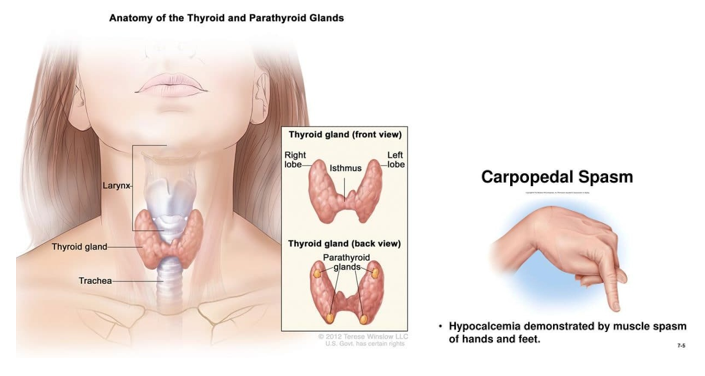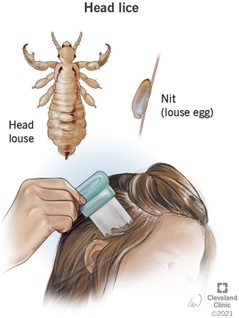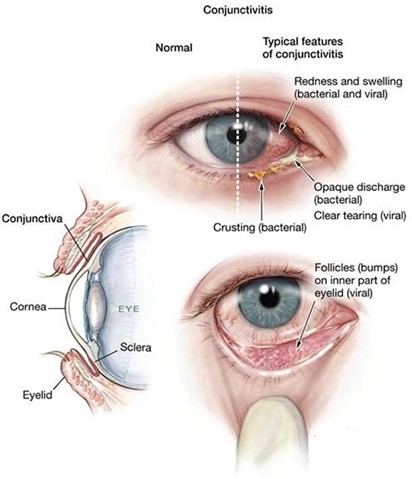The nurse is caring for a child with hypoparathyroidism who demonstrates a carpal spasm when pressure is applied to the upper arm. Which laboratory value should the nurse review?
Potassium.
Chloride.
Sodium.
Calcium.
The Correct Answer is D
Hypoparathyroidism is a disorder in which the parathyroid glands produce insufficient amounts of parathyroid hormone, which regulates calcium and phosphorus levels in the body. In hypoparathyroidism, there is a decreased level of calcium in the blood, which can result in carpal spasm or tetany when pressure is applied to the upper arm.
Therefore, the nurse should review the child's calcium level (D) to determine if it is within the normal range. Low calcium levels can cause muscle spasms, seizures, and cardiac arrhythmias. Hypocalcemia may also result in other symptoms such as numbness, tingling, and muscle cramps.
Potassium (A), chloride (B), and sodium (C) are electrolytes that play important roles in various physiological processes in the body, but they are not directly related to the development of carpal spasm in a child with hypoparathyroidism. While hypokalemia (low potassium) or hyponatremia (low sodium) can cause muscle weakness or cramps, these conditions are not typically associated with carpal spasm in hypoparathyroidism.

Nursing Test Bank
Naxlex Comprehensive Predictor Exams
Related Questions
Correct Answer is D
Explanation
The nurse should instruct the parents to wash the child's bed linens and clothing in hot soapy water to kill any remaining head lice and prevent reinfestation. The child's brushes, combs, and other hair accessories should also be washed in hot soapy water or disposed of. Taking the child to a hair salon for a shampoo and a shorter haircut is not necessary for treatment of head lice. Rewashing the child's hair following a 24-hour isolation period is not necessary if the permethrin shampoo has been used as directed.

Correct Answer is B
Explanation
When using an ophthalmic anti-infective ointment, it is important to prepare the child for blurry vision after ointment application. This is because the ointment can temporarily blur vision after application. It is important to follow the instructions on the medication label and continue using the ointment for the full course of treatment, even if symptoms improve before then ¹.

Whether you are a student looking to ace your exams or a practicing nurse seeking to enhance your expertise , our nursing education contents will empower you with the confidence and competence to make a difference in the lives of patients and become a respected leader in the healthcare field.
Visit Naxlex, invest in your future and unlock endless possibilities with our unparalleled nursing education contents today
Report Wrong Answer on the Current Question
Do you disagree with the answer? If yes, what is your expected answer? Explain.
Kindly be descriptive with the issue you are facing.
